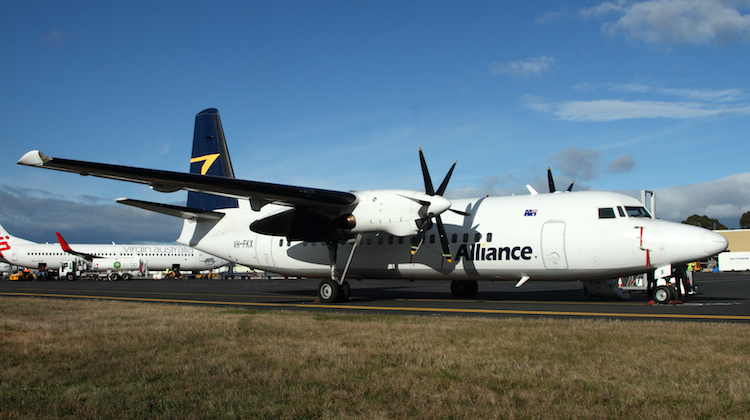
Virgin Australia Regional Airlines (VARA) and Alliance Airlines say their proposed charter alliance will allow them to compete more effectively against the “one-stop shop” offering from Qantas.
The pair is seeking Australian Competition and Consumer Commission (ACCC) approval to work together in the charter market on joint tendering for corporate fly-in/fly-out (FIFO) contracts.
The application stated VARA and Alliance had complementary businesses. While both had a base in Perth, Alliance was also present on Australia’s east coast and in central Australia.
Similarly, VARA parent company Virgin Australia had a strong regular public transport (RPT) network and its Velocity frequent flyer program offered FIFO passengers benefits such as lounge access that Alliance could benefit from and what its corporate clients, the bulk of which come from the mining sector, were seeking.
By combining their respective strengths, VARA and Alliance would better match what Qantas was currently able to offer, including through check-in on multi-leg itineraries featuring both RPT and charter flights.
“Currently, Qantas is in a superior (and in part unique) position to provide a full suite of corporate-related services which include charter services, RPT (domestic and international) services and frequent flyer and lounge benefits, to corporate customers on the east coast and central Australia,” the application said.
“Corporate customers have given both of the applicants feedback during tender processes that Qantas is the only provider of the ‘one-stop shop’ on a national basis.
“In a situation where some customers are looking to package their national air services requirements in order to get a more competitive ‘global’ price offer from Qantas, the charter alliance will enable the applicants to match that integrated product offering and compete head to head with Qantas.
“This enhanced competitive position will increase overall competition for corporate charter customers, and particularly competition against Qantas, which is a substantial public benefit for Australian corporate customers.
“Corporate customers, particularly companies with a large FIFO workforce, view these ancillary benefits as highly desirable because the provision of a comprehensive frequent flyer program is a key employee benefit that can be used to attract a higher skilled workforce in a market where there is a shortage of suitable workers.”
VARA and Alliance first announced plans to form a strategic alliance for charter services in February. They lodged their application with the ACCC at the end of August, after signing a long-term agreement earlier that month.
On face value the partnership appears to make a lot of sense. FIFO flying has declined following the end of the so-called mining boom, leaving the market – where other major players aside from the Qantas group of airlines include Cobham Aviation Services and Skippers – considerably more competitive.
The application noted the downturn in the mining sector had resulted in excess capacity and led to demands from corporate clients to do “more for less”.
“Since mid-2013, the mining industry as a whole has been in decline as shown by the annual growth in capital expenditure in the mining sector by volume over time,” the two airlines said.
“As there are very few new resources projects coming online, reductions in the size of FIFO workforces and the closure of mines, demand for FIFO air services has waned over the past few years and there is substantial excess capacity to support FIFO services.
“In addition to the downturn resulting in decreased demand for FIFO services, resource companies are also exerting pressure on FIFO operators to deliver enhanced value through reduced prices.
“Even after diversifying operations and restructuring fleet, there is excess capacity in the FIFO sector as a result of the downturn and therefore operators are competing vigorously for corporate customers, with some operators approaching customers that are close to being out of contract ahead of them commencing their tender procurement processes.”
The application noted VARA operated a fleet of 14 Fokker 100s and two Airbus A320s based at Perth Airport, while Alliance operated five Fokker 50s, eight Fokker 70s and 15 Fokker 100s from operating bases at Brisbane, Townsville, Cairns, Adelaide, Perth, Melbourne and Auckland.
Based on their respective fleets, Virgin could not offer a charter solution involving aircraft fewer than 100 seats, while Alliance was similarly restricted for charter clients requiring an aircraft with more than 100 seats.
“The charter alliance is a commercial response to the limitations of each of VARA and Alliance Airlines’ current charter and FIFO service capacity,” the application said.
“Through the charter alliance, the applicants will be able to offer customers a more compelling, competitively priced product than each applicant could provide separately.”
The application said the charter alliance would exclude government customers, charter brokers and ad-hoc charter customers.




